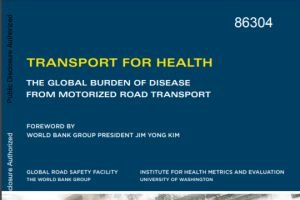Speed Management Research: A Summary Comparison of Literature Between High-Income and Low and Middle-Income Countries

Overview
Low- and middle-income countries (LMICs) have been experiencing growth in vehicle travel and mobility but have not yet realized road safety gains experienced by high-income countries. Excessive and inappropriate speed is known to be a major cause of road crashes, injuries and deaths. Thus, speed management is considered a key initiative for improving road safety outcomes worldwide and has been applied successfully in most high-income countries.
Proven interventions do not necessarily have the same impacts in LMICs, or may not be feasible to apply, due significant differences in traffic mix, road user behavior, road design and vehicle standards.
This document summarizes current available knowledge about speed, its effects on safety, mobility and emissions, along with potential safety effectiveness of speed management initiatives in the LMIC context. Knowledge gaps for LMICs are clearly referenced for further consideration.
The knowledge summary provides a useful reference for practitioners wishing to inform themselves about traffic
speeds, their selection and impacts on safety outcomes, mobility and emissions. The LMIC knowledge gaps will be
useful in considering future research and data priorities.
Report Details
Speed Management Research: A Summary Comparison of Literature Between High-Income and Low and Middle-Income Countries
Did you know?
82% of Road Crash Fatalities and Injuries in the economically productive age groups (15 - 64 years.)
82% of Road Crash Fatalities and Injuries in the economically productive age groups (15 - 64 years.)


